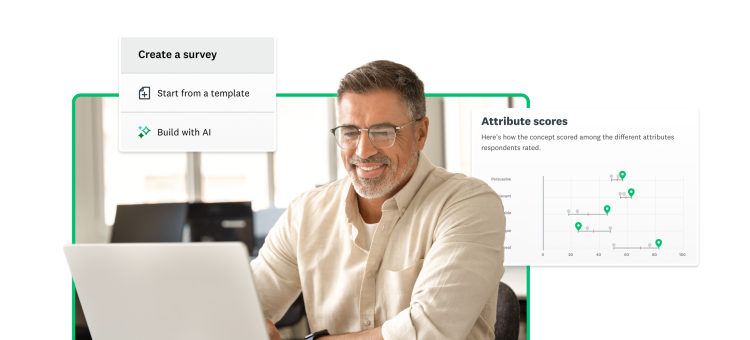Rhode Island boasts one of the country’s highest per-capita testing rates for the virus, testing the equivalent of 20% of its population by late June. Meanwhile, Gov. Gina Raimondo has imposed a 14-day quarantine for visitors from high-risk states and has taken a measured, data-backed approach to reopening the state’s economy.
At the time of this article’s publication, Rhode Island had 16,800 total cases and was one of only two states in the US recording a declining caseload.
In an interview with SurveyMonkey, Raimondo said an important part of her state’s success in the fight against coronavirus has been to seek data on the crisis from diverse sources—including a simple, yet sophisticated tracking program her team set up with SurveyMonkey to monitor the spread and impact of the virus among her constituents.
“There’s no one data source to watch. You have to track them all: symptoms, tests, hospitalizations, fatalities,” Raimondo said. “This whole system is about constant information. If you’re only paying attention to how quickly you double your hospitalizations, then by the time they’re actually doubling, you’re already going to be in big trouble.”
Raimondo said the survey, which the state sends via SMS message to 6,000 Rhode Islanders a week, helps health officials understand how many people are reporting symptoms, what symptoms people are experiencing, how quickly they develop, and whether they’re isolating themselves. This data can help them identify potential outbreaks or areas of focus—and can even help them mobilize support to help those who have become ill.
“If someone is in quarantine or isolation and they have no ability to get food, they’re very likely to break their quarantine to go to the grocery store and then that massively contributes to the spread of the virus,” Raimondo said. “If we’re surveying them and we know that, then we can react, deliver them food through one of our services, and they can stay home and not spread the virus.”
Get help navigating the coronavirus crisis
Get professional support setting up a survey system to help check in with employees, monitor community wellness, make sure frontline workers are safe, and more.
The program allows people with symptoms of coronavirus to opt in to receive daily links to short, concise surveys that are designed to be quick and easy to take. As a result, recipients have completed more than 84% of the surveys sent. The survey, which Raimondo sends from a SurveyMonkey Enterprise account with optional HIPAA-compliant features, feeds the data directly into Salesforce via the standard SurveyMonkey-Salesforce integration to allow health officials to easily monitor the progression of those who opt in to the program.
Raimondo says this system is a critical part of Rhode Island’s coronavirus response, which, critically, they were able to quickly get up and running with the help of SurveyMonkey’s consulting team, sorting out the details of the survey design and product functionality in a matter of days.
“Speed matters and information matters, and SurveyMonkey has allowed us to have both,“ she said. “11 days after beginning work with SurveyMonkey’s team, we were surveying the public.”
Raimondo said investments in public-private partnerships like the one between SurveyMonkey, Salesforce, and the State of Rhode Island can help states across the country develop systems like Rhode Island’s that help them monitor and better control the spread of coronavirus.
“And by the way, we’re going to need them,” she said. “We’re going to be living with this for at least a year—or for every bit of a year—until a vaccine is widely available. So whether it’s testing or contact tracing, or using surveys to get real-time feedback from your community, every investment we make now is worth it.”
SurveyMonkey's resources for the coronavirus crisis
Coronavirus-related survey templates, information, and discounts are available for certain organizations addressing the crisis.



